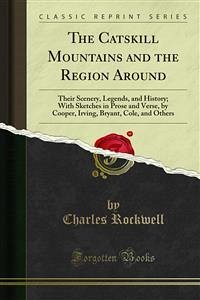By the victory of our fleet at Manila Bay, one more of the world’s side-tracked capitals has been pulled from obscurity into main lines of prominence and the average citizen is no longer left, as in days gone by, to suppose that Manila is spelt with two l’s and is floating around in the South Sea somewhere between Fiji and Patagonia. The Philippines have been discovered, and the daily journals with their cheap maps have at last located Spain’s Havana in the Far East. It is indeed curious that a city of a third of a million people—capital of a group of islands as large as New England, New York, Delaware, Maryland, and New Jersey, which have long furnished the whole world with its entire supply of Manila hemp, which have exported some 160,000 tons of sugar in a single year and which to-day produce as excellent tobacco as that coming from the West Indies—it is curious, I say, that a city of this size should have gone so long unnoticed and misspelt. But such has been the case, and until Admiral Dewey fired the shots that made Manila heard round the world, the people of these United States—with but few exceptions—lived and died without knowing where the stuff in their clothes-lines came from.
Now that the Philippines are ours, do we want them? Can we run them? Are they the long-looked-for El Dorado which those who have never been there suppose? To all of which questions—even at the risk of being called unpatriotic—I am inclined to answer, No.
If in place of the more systematic narratives of description, the more serious presentations of statistics, or the more exciting accounts of the bloody months of the revolution and the wonderful victory of our gallant fleet, which are to be looked for from other sources, the reader cares to get some idea of casual life in Manila, by accepting the rather colloquial chronicle of an ex-resident that follows, I shall have made some little return to islands that robbed me of little else than two years of a more hurried existence in State Street or Broadway.
Now that the Philippines are ours, do we want them? Can we run them? Are they the long-looked-for El Dorado which those who have never been there suppose? To all of which questions—even at the risk of being called unpatriotic—I am inclined to answer, No.
If in place of the more systematic narratives of description, the more serious presentations of statistics, or the more exciting accounts of the bloody months of the revolution and the wonderful victory of our gallant fleet, which are to be looked for from other sources, the reader cares to get some idea of casual life in Manila, by accepting the rather colloquial chronicle of an ex-resident that follows, I shall have made some little return to islands that robbed me of little else than two years of a more hurried existence in State Street or Broadway.









